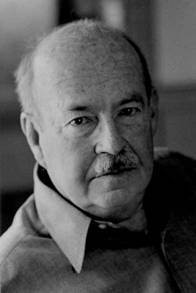
Jürgen Habermas is a German philosopher and social theorist in the tradition of critical theory and pragmatism. His work addresses communicative rationality and the public sphere.

Max Horkheimer was a German philosopher and sociologist who was famous for his work in critical theory as a member of the Frankfurt School of social research. Horkheimer addressed authoritarianism, militarism, economic disruption, environmental crisis, and the poverty of mass culture using the philosophy of history as a framework. This became the foundation of critical theory. His most important works include Eclipse of Reason (1947), Between Philosophy and Social Science (1930–1938) and, in collaboration with Theodor Adorno, Dialectic of Enlightenment (1947). Through the Frankfurt School, Horkheimer planned, supported and made other significant works possible.

Theodor W. Adorno was a German philosopher, sociologist, psychologist, musicologist, and composer.

Talcott Parsons was an American sociologist of the classical tradition, best known for his social action theory and structural functionalism. Parsons is considered one of the most influential figures in sociology in the 20th century. After earning a PhD in economics, he served on the faculty at Harvard University from 1927 to 1973. In 1930, he was among the first professors in its new sociology department. Later, he was instrumental in the establishment of the Department of Social Relations at Harvard.

The Frankfurt School is a school of social theory and critical philosophy associated with the Institute for Social Research, founded at Goethe University Frankfurt in 1923. Active in the Weimar Republic during the European interwar period, the Frankfurt School initially comprised intellectuals, academics, and political dissidents dissatisfied with the contemporary socio-economic systems of the 1930s. The Frankfurt theorists proposed that social theory was inadequate for explaining the turbulent political factionalism and reactionary politics occurring in 20th century liberal capitalist societies. Critical of both capitalism and of Marxism–Leninism as philosophically inflexible systems of social organization, the School's critical theory research indicated alternative paths to realizing the social development of a society and a nation.

Social philosophy examines questions about the foundations of social institutions, social behavior, and interpretations of society in terms of ethical values rather than empirical relations. Social philosophers emphasize understanding the social contexts for political, legal, moral and cultural questions, and the development of novel theoretical frameworks, from social ontology to care ethics to cosmopolitan theories of democracy, natural law, human rights, gender equity and global justice.

The American Sociological Association (ASA) is a non-profit organization dedicated to advancing the discipline and profession of sociology. Founded in December 1905 as the American Sociological Society at Johns Hopkins University by a group of fifty people, the first president of the association would be Lester Frank Ward. Today, most of its members work in academia, while around 20 percent of them work in government, business, or non-profit organizations.

Richard Morris Titmuss (1907–1973) was a pioneering British social researcher and teacher. He founded the academic discipline of social administration and held the founding chair in the subject at the London School of Economics.

Harry F. Dahms is Professor of Sociology, co-director of the Center for the Study of Social Justice and co-chair of the Committee on Social Theory at the University of Tennessee - Knoxville. Dahms also is an associate editor of Basic Income Studies and Soundings. An Interdisciplinary Journal, and was a founding member of the editorial boards of The Newfound Press, as well as of Anthem Studies in the Political Sociology of Democracy, on whose board he has remained. Since 2022, he has been a member of the AI Tennessee Initiative taskforce.
The positivism dispute was a political-philosophical dispute between the critical rationalists and the Frankfurt School in 1961, about the methodology of the social sciences. It grew into a broad discussion within German sociology from 1961 to 1969. The naming itself is controversial, since it was the Frankfurt School proponents who accused the critical rationalists of being positivists—while the latter considered themselves to be opponents of positivism.
The following events related to sociology occurred in the 1910s.
The following events related to sociology occurred in the 1920s.
The following events related to sociology occurred in the 1930s.
The following events related to sociology occurred in the 1940s.
The following events related to sociology occurred in the 1960s.
The following events related to sociology occurred in the 1970s.

The sociology of literature is a subfield of the sociology of culture. It studies the social production of literature and its social implications. A notable example is Pierre Bourdieu's 1992 Les Règles de L'Art: Genèse et Structure du Champ Littéraire, translated by Susan Emanuel as Rules of Art: Genesis and Structure of the Literary Field (1996).

This bibliography of sociology is a list of works, organized by subdiscipline, on the subject of sociology. Some of the works are selected from general anthologies of sociology, while other works are selected because they are notable enough to be mentioned in a general history of sociology or one of its subdisciplines.
Morris "Buzz" Zelditch was an American sociologist. He was Emeritus Professor of Sociology at Stanford University, where he had been a member of the faculty since 1961. He was known for his work on the effects of status characteristics embedded in the stratification of the larger society, legitimacy of structures of authority, and generalizability of the results of sociological experiments.